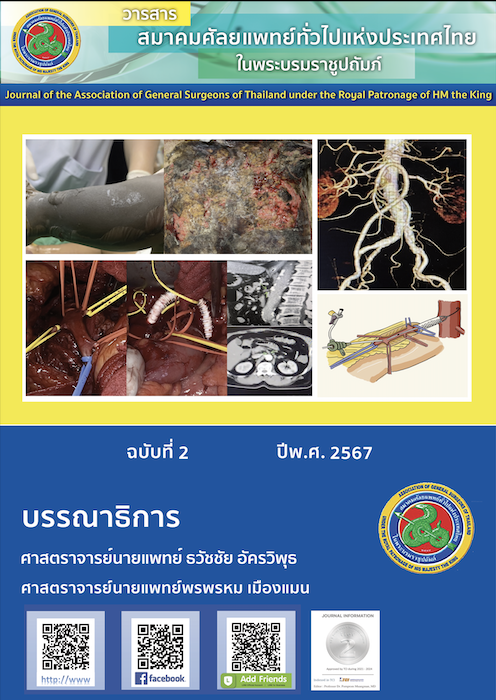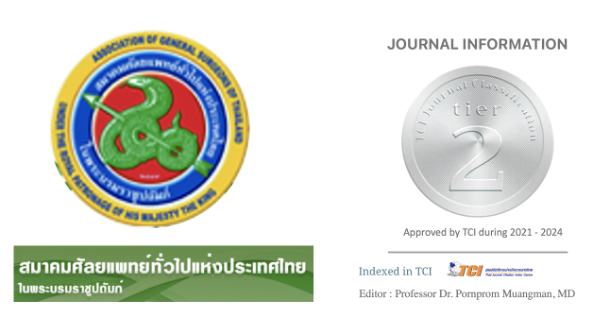Predictive factors and prediction model for advanced colorectal neoplasia in Pattani, Thailand
Keywords:
Advanced colorectal neoplasia, Colorectal cancer screening, Risk stratificationAbstract
Abstract
Background: Understanding the predictive factors of advanced colorectal neoplasia (ACN) is crucial for constructing a prediction model for its detection.
Objective: We aimed to determine the predictive factors associated with advanced colorectal neoplasia in the Pattani population appointed for colonoscopies.
Method: A prognostic factor research with a retrospective, cross-sectional design including 637 patients from Pattani Hospital was conducted between July 2020 to April 2024. All participants had a complete colonoscopy to determine the presence of advanced neoplasia, defined as an adenoma 10 mm or more in diameter, a villous adenoma, an adenoma with high-grade dysplasia, or invasive cancer. Variables were examined based on the Asia Pacific Colorectal Screening (APCS) score, and additional variables, such as the history of alcohol use, diabetes mellitus, and body mass index (BMI), were included. We use multivariable logistic regression to identify the predictive factors and develop a prediction model for predicting ACN.
Results: 87 people were recognized to have ACN, while 530 participants were not. Multivariable analyses revealed significant increased risks for men (OR, 2.69; 95% CI, 1.51, 4.79), aged 50-69 years (OR, 3.36; 95% CI, 1.39, 5.44), age >70 years (OR, 4.57; 95% CI, 2.12, 9.87), and individuals who currently or formerly smoked (OR, 1.93; 95% CI, 1.04, 3.57). No significant association was observed between a family history of colon cancer in first-degree relatives, alcohol consumption, diabetes mellitus, and a body mass index greater than 23. The prediction model was developed using six predictive factors: gender, age, smoking, family history of colon cancer in first-degree relatives, alcohol consumption, and body mass index (BMI). The model demonstrated a greater area under the receiver operating characteristic curve (AuROC) of 0.71 (95% CI, 0.65, 0.76) compared to the APC score of 0.61 (95% CI, 0.56, 0.67), with a significant difference (p<0.001).
Conclusions: The predictive factors for advanced colorectal neoplasia (ACN) detected in this study may be helpful in clinical applications for predicting ACN risk in Pattani.




